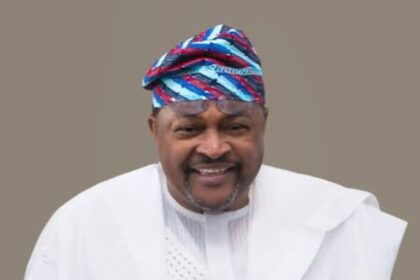The Deputy President of the Senate, Ike Ekweremadu, has said that some proposed amendments to the 1999 Constitution recently rejected by the National Assembly may still be passed when revisited.
He said that further consultation and understanding of the issues involved were needed.
The Deputy Senate President made the comments during a consultative meeting on South-East infrastructural development with a delegation of the Partnership to Engage, Reform and the United Kingdom’s Department for International Development led by PERL’s Team Leader, Dr Adiya Ode, in Abuja.
A statement by Ekweremadu’s Special Adviser on Media, Uche Anichukwu, quoted him as saying, “We commend our colleagues for their understanding and ensuring that about 95 per cent of the amendments we proposed to them scaled through.
“We are also conscious of the fact that Nigerians are worried about some of the recommendations that did not pass. Let me use this opportunity to further appreciate and reassure Nigerians that we are sensitive to their feelings and that we are likely going to revisit some of the issues they are concerned about when we return from our vacation.
“Some of the issues did not sail through because there is a need for fuller understanding as well as more consultations and consensus building on them and their implications for our people.”
Ekweremadu also stated that devolution of power to the federating units would quicken infrastructural development in the country.
He said, “No doubt, your studies on the South-East were right because the region is indeed highly challenged, especially in the areas of transport infrastructure such as roads, railway, and seaport. We are also challenged in the areas of power.
“That is why we in the Committee on Constitution Review believe we mean well when we talk about things like devolution of power. Our view is that some of these things should be moved from the Exclusive List to the Concurrent List so that while the Federal Government is making efforts, the states too will be making efforts either individually or in clusters or partnership with one another.
“That was why we took things like power to the Concurrent List so that states can generate power, transmit, and distribute power. The same goes for railway, which is still the exclusive preserve of the Federal Government. That way, Nigeria can effectively speed up socio-economic development in all parts of the country.
He regretted that some of these issues were misunderstood but stressed that it was not the end of the road, saying, “We believe that with more engagements, the issues will be better appreciated and we are positive about more favourable dispositions when we revisit them. As leaders, we all have our eyes on the future and are committed to building a better Nigeria for posterity.”
Earlier in her remarks, the Team Leader of PERL, Ode, commended the National Assembly for voting in favour of autonomy for local government and state Houses of Assembly, and called for greater support for gender mainstreaming and other amendments that would speed up national development.



